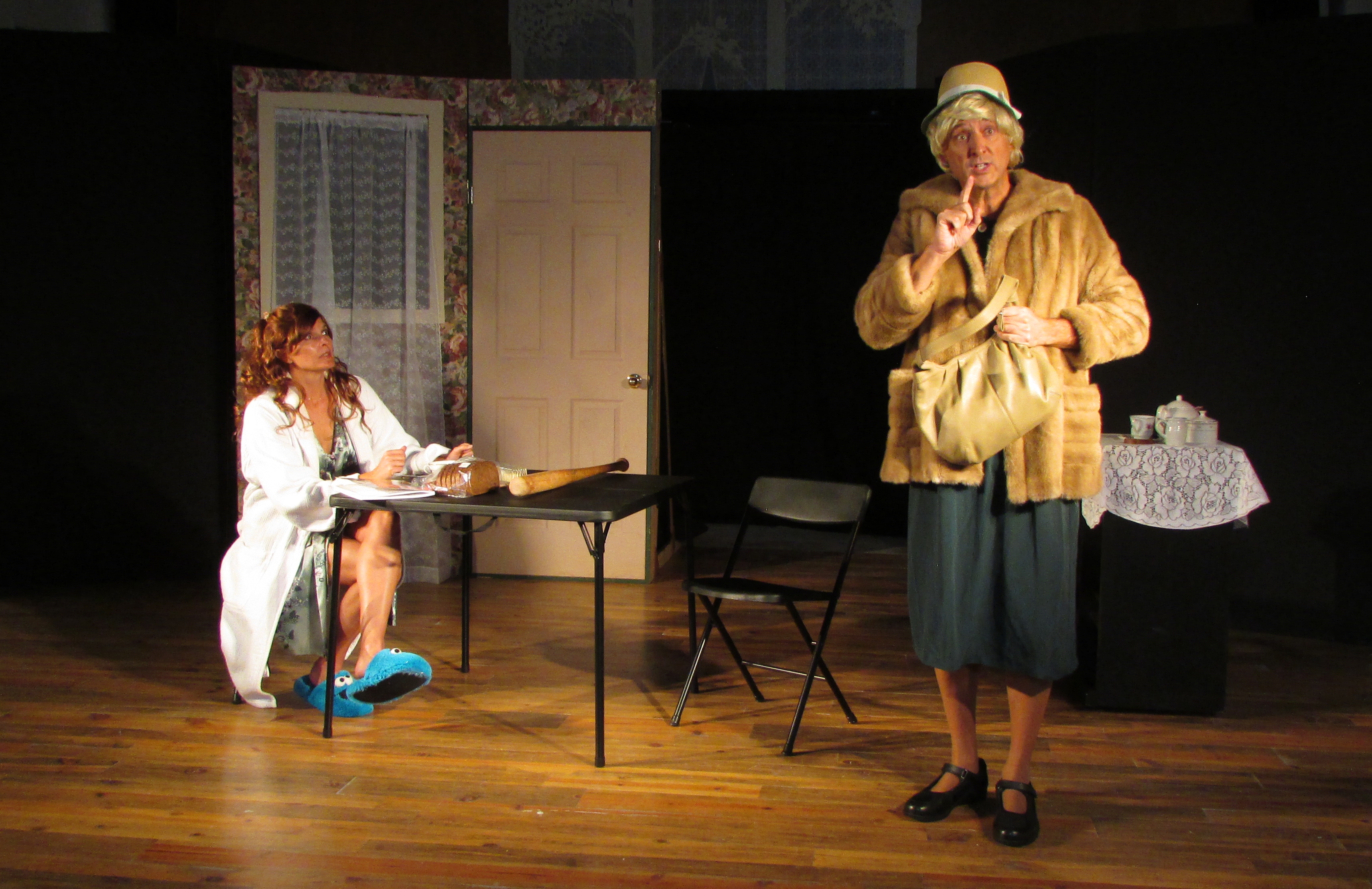TUESDAY OF THE DEAD by Dan Weatherer produced November, 2018 at the Last Chance New Play Fest in Helena, Montana.
I looked around and it was 2019. How did that happen? I have been meaning to write a meaningful blog since November. Writing a blog is a little like writing a play for me. The idea ping pongs inside my brain for months and eventually I sit down to write and it starts with a line off the top of my head. So this blog begins with “What Would You Do to Get Your Play Produced?”
About five years ago I spearheaded the launching of a New Play Fest in Helena, Montana. No, that’s not what I did to get my plays produced, but it definitely got me writing new work. After the first year we started a project called “Montana Short Cuts” to include in the Fest. For the project we solicited Montana playwrights to submit 10-minute plays written specifically for the Fest on a common theme and then selected eight to be performed. Of the eight, one would receive a cash award of $50. For our 2018 Fest we received a submission for the Montana Short Cuts from a playwright who listed his address as Cascade, Montana. I recognized the play as soon as I began reading it. It was a play published by Heartland Plays, Inc. by British author and playwright Dan Weatherer. (What are the odds I’d be one of the Fest producers and also the owner of Heartland Plays, Inc.?) I let my fellow producers know and then I contacted the playwright directly. He immediately responded:
“Oh, crap! I really wanted to land that play, so I thought I’d tell a lil porky. I’d never have accepted the money though, just wanted the piece to be performed.
Please send my apologies.”
I saw this as a teaching moment to show the importance of new play festivals and how difficult it is to get new work produced. I lobbied my fellow producers to include the play in the Fest along with the story behind it. One was flatly against it. He said:
“We can discuss this with Steven, [the third producer] but to me, that’s fraud and he shouldn’t be rewarded for it. If he’d approached you and said beforehand that he thought it matched the topic but knew it didn’t fit the rules, I’d feel ok, but he lied, and that’s not OK.”
I really wanted to include the script. I tried another approach and sent my idea to the playwright:
“I might convince the others to produce it with you as a guest artist, with a connection to Montana through me. I can always pitch the idea.”
The playwright responds:
“Thank you for saying. I’d be happy for you to suggest that. Again, apologies for my cheeky tactics. I just saw the call and knew I had a piece that would fit perfectly, and thought “why not try and see!” I’ll think twice next time (but likely still submit, lol!).”
We posted a poll on our Facebook page. Most of those responding were against including the play. But I persisted and so the decision was made that I would produce the play at my own expense and it would be performed four times, not as part of the Montana Short Cuts themed collection but as the outstanding work of a Guest Artist who just happens to hail from Straffordshire, Great Britain and not Cascade, Montana. And now a few last words from the playwright bringing us full-circle to the original question, “What Would You Do to Get Your Play Produced?
“I work as an author, film maker and a playwright (as you know) and have witnessed the stringent submission criteria set only in the theatre industry, first hand.
For example, when I submit a novel, not once am I required to mention my age/ethnicity/location/sexual orientation, or any such personal details. The publisher wants a story. They don’t care who wrote it: a good story stands firm no matter the background of the author.
While I can see a positive in having extremely narrow submission criteria with regards to the background of an author, (at least in theory, in a world where it is believed BAME/LGBT writers are largely ignored, a belief I don’t hold, btw) I maintain a good play is a good play. I have written from the viewpoint of all sorts of fictional characters: I didn’t need to have lived their life in order to portray them.
I guess I find the mentality counter productive: by narrowing your eligible submission criteria, you are possibly excluding strong material from writers who don’t “fall beneath the banner”. I always wondered why this was, as, like I said, it rarely occurs in other mediums.
Ditch the banner! We are all playwrights! Like we are all novelists or film makers!
I’m all for promoting an area’s talent (as in your case with Montana) as I have initiated similar ventures for my home county. I believe they are key to laying the foundations for a local scene. (local being the ONLY banner applied.)
Where I struggle is with restrictions placed on a writer’s background.
I’ll be honest : I’ll sub anywhere I feel I have a piece that fits. I’ve subbed as a homosexual man, and now I’ve subbed as a Montana native. I’ll likely keep on doing so because I’ve work I want people to see. I just wish more theatre companies opened their eyes to the playwright exclusions they are unintentionally applying.
What are your thoughts? Am I reading this wrong? I’m all for offering opportunities to voices that might otherwise go unheard, but I believe all playwrights voices are unheard until you break through, regardless of your background.”

